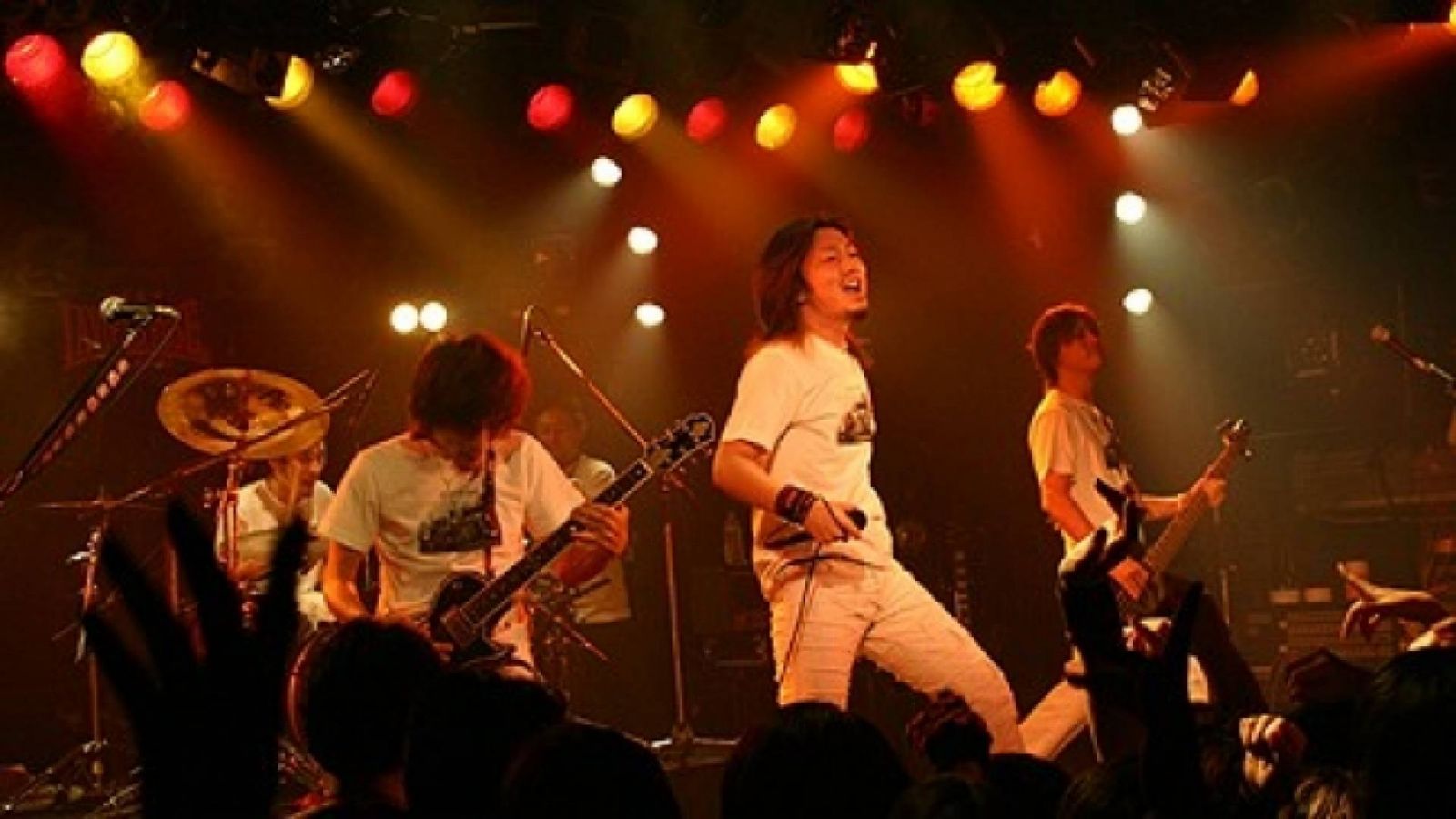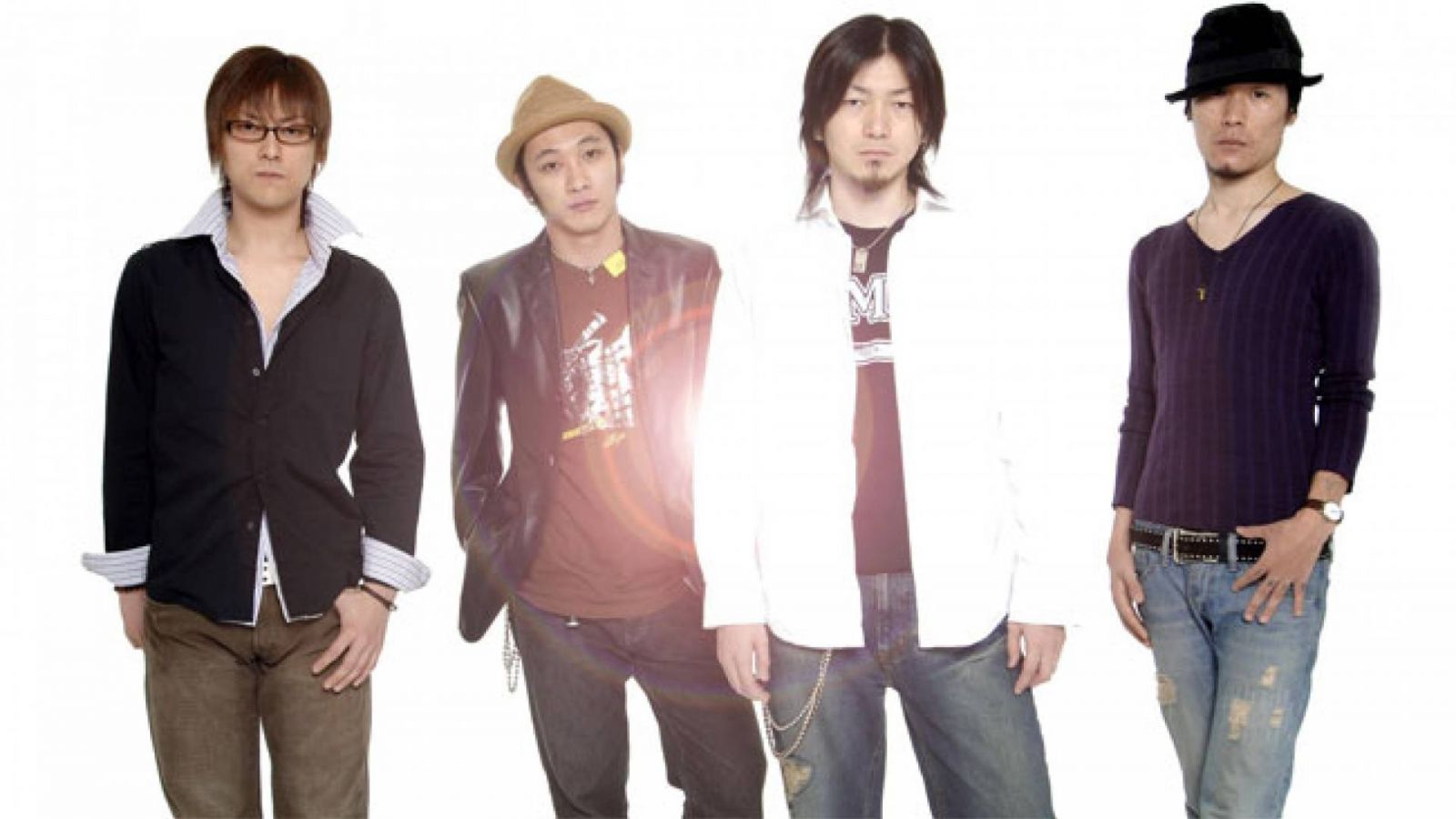On the first anniversary of its initial release, La Vie En Rose's final album still blossoms.
The last album by Ibaraki legends La Vie En Rose, Atarashii Asa was released on October 11th, 2006. Containing eleven tracks and an emotional rollercoaster, it is to this day a shining example of the talent possessed by the four men who made up La Vie En Rose.
Mabuta, the only track on the album to have been written partly by vocalist YUTA, opens Atarashii Asa. If it were not mixed so perfectly together, listeners may have had difficulty deciding on which parts of the song to pay the most attention to: the almost surprisingly strong rhythm section or the emotion displayed by the other two. While YUTA's voice is undeniably passionate, it is the brief guitar solo by Ke2 that seems to pierce the listener's heart. A poignant and powerful song, it is the perfect opening track for the band's final album.
The following track, Mabushiki Mirai, is 'classic' La Vie En Rose with brisk verses and a sing-along, punk style chorus. Ke2 has another brief, stunning solo that brings to mind the wild guitar solo style perfected by American artist Jimi Hendrix. This eccentric style is layered over a very solid performance by the rhythm section, giving the song its rather punky feel. The mood set in place by Mabushiki Mirai continues in the following two tracks, Kami Hikouki and Ikusen mo no Hoshi. The former is an inviting tune as YUTA's vocals set a warm, nostalgic sort of tone; listening to this song, even for the first time, one feels like they're meeting an old friend. Ikusen mo no Hoshi has something of a similar, comfortingly familiar feel although it seems a bit pallid when compared to the stronger Kami Hikouki. While a good track, it's missing the subtle emotion that was present in the lovely Kami Hikouki.
The opening seconds of Kono Koe ga Kareru Hi made lead one to anticipate a slow ballad, but the track picks up its tempo slightly at around the half minute mark with a delightful guitar line. The guitar and bass work in this song is subtly brilliant; there's no insane, wild solo from either Ke2 or KEN, but one isn't needed and would only detract from the overall atmosphere of the song. This is a charmingly modest track and one of the most touching on the entire album.
Saigo no Ai is an entirely different sort of tune. Opening with a quirky bass line from KEN, the punk rock side of La Vie En Rose is back with a vengeance. Rather close in feel to the first track on Atarashii Asa, Saigo no Ai is still an odd sort of song; the instrumental components, especially those in the rhythm section, seem to be going rather wild while YUTA, by contrast, seems more constrained, controlled. Bass guitar lovers will soak up KEN's contribution while Ke2's solo, roughly half way in, reminds one of the piercing solo he gave us in Mabuta.
The following track is the tempestuous Ikiteiru dake de Kizutsukeru. It tosses the listener about in surprisingly emotional waves, originally starting out as something of a lullaby-ish, mellow tune before a vocal break suddenly slices through. Thoroughly jarring, although not at all in a bad way, it connects the slower verses with the turbulent, stormy chorus. An extremely powerful song, YUTA lays himself bare in the chorus, which is a welcome change from the restraint he showed in Saigo no Ai.
Kudaku Saibou follows Ikiteiru dake de Kizutsukeru and comes as something of a shock. In addition to a rather techno opening, new listeners to La Vie En Rose may wonder about the vocals in this song and why YUTA suddenly doesn't quite sound like himself. The vocal work in this track is different from any other on Atarashii Asa for the simple fact that the song is not sung by YUTA but instead drummer kyohsuke. Written after the band had decided to disband, the lyrics are also by the drummer and about the disbandment. Though there are some artificial instruments featured, in addition to the dark bass line, this is no peppy dance floor tune and is quite close to Mabuta in mood. Grieving fans will no doubt be able to relate to kyohsuke's lyrics about crumbling and lost dreams.
Christmas-themed songs are often wearisome and poorly done when set to rock, and so many listeners will undoubtedly experience some trepidation as Christmas no you ni begins. Opening with the gentle sound of sleigh bells, Ke2's guitar soon joins in to lead the listener into the rest of the song. Making, thankfully, absolutely no attempt to be punk or hard rock, which would've been disastrously out of place, Christmas no you ni is instead an uplifting rock song with a soaring chorus. One will be hard-pressed to not sing along with the chorus, likely smiling as they do so. An extremely lovely song, it is perhaps the best Christmas-themed Japanese rock song ever heard on either side of the Pacific as it manages to be sentimental without being cloyingly so.
It's the drums, not sleigh bells, that welcome listeners into the tenth track, LIVE! LIVE! LIVE!. An upbeat, punkish song with an extremely catchy chorus, it even features a hint of English such as the shouts of "Every day, every night!" which beg to be sung along with. kyohsuke shines with a simplistic but well-suited drum solo in addition to keeping the quick tempo dancing through the song. YUTA pushes himself into a shockingly high range near the end of the tune but does so very well, his voice never wavering nor growing weak. After such a strong track, one is eager for Hashikozake to begin but the listener will have to wait for at least thirty seconds before hearing the now familiar voices of La Vie En Rose. Lacking any instrumentals to speak of, it is at once both a wonderfully cheery and tongue-in-cheek song in addition to being terribly heart breaking. A simple track, it is the final time that fans will hear the voices of the four members of La Vie En Rose all together as the men simply sing, clapping along to keep the beat. One can easily visualize this having been performed before in happier times at a restaurant or bar and it is with that thought in mind that Atarashii Asa comes to a close.
La Vie En Rose is gone, but not forgotten; not by their fans or the bands they've influenced. Even if one was not previously a fan of this group, Atarashii Asa begs for a listen from its darker tracks such as Ikiteiru dake de Kizutsukeru and Mabuta to the punkier LIVE! LIVE! LIVE! to the cheerful Christmas no you ni. There is a track on this album for everyone and for those who simply enjoy skillfully done rock music, this album is a must-have.
For fans of La Vie En Rose, both long-time listeners and newer converts, this entire album is for you.
![HYDE [INSIDE] LIVE 2024 -EXTRA- at Makuhari Messe](https://www.jame-world.com/media/image/2024-11/_16-9_14951.jpg)






